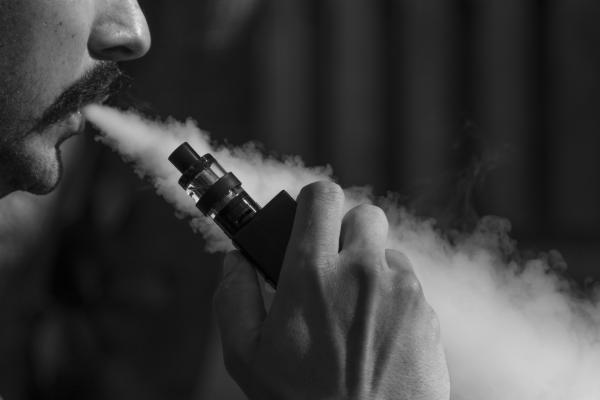Teenagers have no business using electronic cigarettes. Public health officials, scientists and even companies that manufacturer and sell e-cigarettes should do all they can to prevent teen vaping.
That said, there's a point at which judicious public health advocacy devolves into ideological activism that actually does more harm than good. We saw an example of this devolution in North Carolina recently, where the vaping company JUUL agreed to pay $40 million over six years to settle a lawsuit alleging it deliberately marketed its e-cigarettes to underage customers. North Carolina Attorney General Josh Stein summed up the case against JUUL for CNN in May 2019:
'My investigation showed two things: One, [JUUL] targeted young people. And two, it misleads the public about the potency of nicotine in its products,' [Stein] said. 'You only have to walk through any high school parking lot in North Carolina to see how pervasive Juul is among young people in our state. 'Juul claims its products are for adults, but its business strategy clearly targeted young people and minors.'
To the extent that JUUL actually engaged in these practices, the company deserves what it got. The state argued, for instance, that JUUL's management discouraged its employees from “digging around” (p 4) to find out if minors were buying their products online, though JUUL denied any admission of wrongdoing as part of the settlement (p 35).
We'll leave it to someone else to settle the he said, she said match. But the lawsuit, like the case against vaping more generally, seems to be motivated by several claims that don't stand up to scrutiny. Those assertions are worth dispelling, because vaping serves an important function—reducing tobacco consumption, which kills thousands of Americans every year. [1]
There's a “teen vaping epidemic”
Some teenagers do vape, “about 1 of every 20 middle school students (4.7%),” according to the CDC, and “1 of every 5 high school students (19.6%).” But the numbers are declining. Data published by the FDA in September 2020 showed that “1.8 million fewer U.S. youth are currently using e-cigarettes compared to 2019.” Keep in mind that “currently using” includes anyone who has vaped in the last 30 days. That means a teenager who experimented once with e-cigarettes and his or her friend who vaped daily for a month were lumped into the same category.
Additionally, most teens who use e-cigarettes are ex-smokers, which means vaping is probably not “hooking” the next generation on nicotine. Instead, underage smokers are replacing a very dangerous addiction with a relatively safer one. Neither is acceptable, of course, but the data don't support the claim that non-smoking teenagers are using e-cigarettes as a gateway to tobacco. Studies going back to at least 2016 back up this conclusion, and the evidence continues to accumulate. As the authors of a 2021 study noted:
Not only does the current study demonstrate that actual data are much more consistent with a diversion effect than a catalyst effect, but the magnitude of this effect is somewhat large, even using conservative assumptions. This is consistent with other recent research showing that declines in cigarette use have accelerated after the introduction of [electronic cigarettes].
Flavored vapes appeal to teenagers
Critics often claim that vaping attracts a youthful customer base, largely because e-cigarette liquids come in all sorts of flavors. “Belying its claimed 'corporate mission' of helping experienced smokers wean themselves from traditional cigarettes,” North Carolina argued, “JUUL developed dessert- and fruit-like flavors calculated to introduce tobacco in an appealing way to non-smokers, especially young people.”
This is a completely nonsensical charge. It's like saying Ruth's Chris steak house developed a dessert menu “calculated to introduce” sweets to diabetics, especially children. I mean, why else would a fancy restaurant serve "chocolate sin cake" or "warm apple crumb tart"? They must know diabetic children like sugary treats!
It should go without saying that people of every age like things that taste good. Multiple studies have now shown that adult smokers who switch to e-cigarettes often do so because of the wide flavor selection they have access to. Given that data, it only makes sense that manufacturers and retailers would offer lots of flavors to prospective customers.
JUUL may have targeted teens with more duplicitous marketing tactics, but “the product tastes good” isn't evidence that e-cigarettes are generally designed to appeal to children. We would have grounds to ban almost every food and beverage on the market if that were true.
The evidence that e-cigarettes help smokers give up tobacco continues to accumulate, both as peer-reviewed research and testimonials from thousands of ex-smokers."I never thought I'd quit smoking. Which was scary, as I knew it would kill me ..." one former smoker wrote. "... In vaping, I have found a way to break a habit and give up a vice I never thought I'd be able to shake."
For whatever reason, tobacco control advocates and lawyers aren't impressed by all these people who gave up cigarettes. Why we can't discourage children from vaping and embrace e-cigarettes as a useful quit-smoking tool for adults is beyond me.
[1] I've used an e-cigarette since 2012, with my doctor's endorsement.
[2] The FDA classifies e-cigarettes as tobacco products, but this designation makes little sense. According to Nicotine and Tobacco Research, "If all products containing nicotine derived from tobacco were labeled as 'tobacco products' internationally, then nicotine-replacement therapies would be classified as tobacco products, which they are clearly not."




